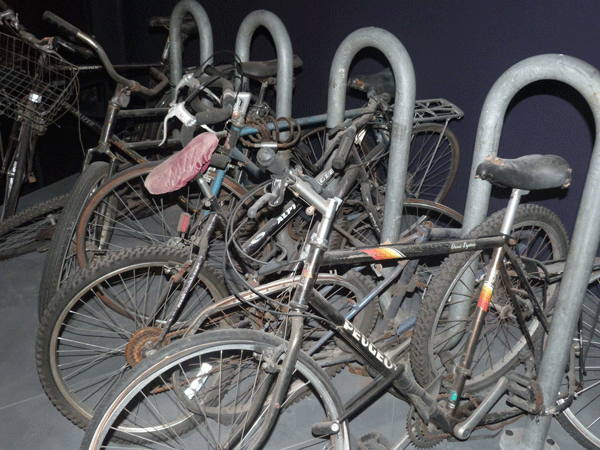Twenty-two years ago today, some young men who believed they fighting for Allah hijacked three passenger airliners. Inside one plane, passengers fought the hijackers and diverted them from careening it into the Pentagon. Instead, the plane crashed into a field, killing everyone on board.
No passengers, crew members or hijackers survived the other two flights, either. One hit the Pentagon. The other slammed into the World Trade Center—just a couple of miles upwind from where I lived at the time.
In previous posts, I commemorated 9/11 anniversaries by discussing the essential workers. Some rode bicycles to their jobs. Others—who delivered everything from contracts to quesadillas—rode bikes for their livings.
Some of their bikes were found weeks, months, even years, later. Some of them, alas, were never heard from again. We can only hope they made it out of the WTC area. If they did, I hope they made it home, wherever that may have been, wherever that is.





